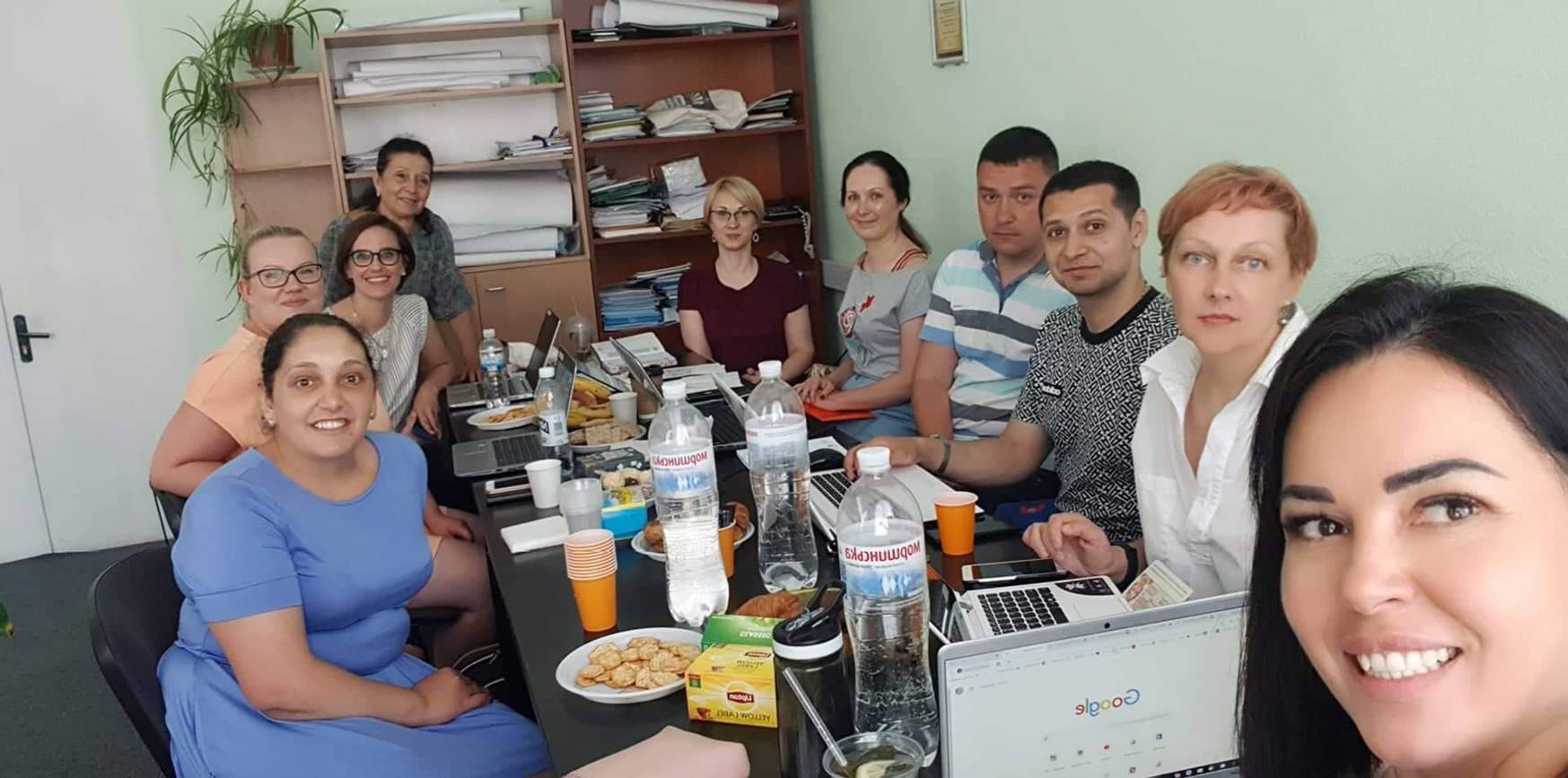We are expanding our work promoting the human rights of Roma to Ukraine, Belarus, and Moldova

In mid-June, those involved in the Roma Women’s Power project met for a first training course in Ukraine.
Moldovan Roma girls dream about having their own business. Now, for the first time, their dreams may come true.
One Roma girl would like to open a café, another a notary’s office, and a third an IT company. A children’s boxing school was also mentioned when the Roma girls from Moldova were asked what sort of business they would like to set up.
The girls who were responding to the questions on their future are lucky. Many of them are the first young women in their families who may have a chance to fulfil their dreams. The everyday reality Moldovan Roma girls face is more like this: less than four years at school (compared to 11 years for other Moldovan girls), marriage, poverty, unemployment, and a life on the margins of society.
The situation is similar for Roma women in Moldova’s neighbouring countries of Belarus and Ukraine. But now the status of Roma women’ is being improved by a four-year project being run by the Deaconess Foundation, funded by the Finnish Ministry for Foreign Affairs.
“Roma women have always been among the most vulnerable group in the region,” explains Anca Enache, development manager at the Deaconess Foundation. “Many Roma women continue to face multiple forms of discrimination, displacement and violence because of their specific life circumstances, which happen very often at the intersection of ethnicity, gender and class inequalities”. Discrimination begins at birth: many Roma girls may not even receive official birth certificates or later help from the authorities in becoming victims of violence.
Roma women contributing to sustainable democracies
The Deaconess Foundation has worked actively to improve the human rights of the Roma communities in Bulgaria, Romania and Kosovo for 25 years. The Roma Women’s Power project, which has started in Moldova, Belarus, and Ukraine is a natural follow-up to previous activity.
“The Deaconess Foundation acts for people who are at risk of being marginalised”, says Christina Nyback, programme coordinator at the Deaconess Foundation. “This is really about supporting the most vulnerable”.
The aim of the project, which started in the spring, is to make Roma women active citizens, to improve their financial independence, and bring them into the field of decision-making. In practice, this will happen, for instance, by creating a strong umbrella organisation in the region for Roma organisations and by training women in entrepreneurship.
“All three countries already have their own Roma women’s organisation, and we are running the project together with them” says Christina Nyback. “We are strengthening the capacity of the organizations and supporting them in their grassroots activity. That way the voice and authority of the organisations will gradually increase.”
Change requires combating stereotypes and discrimination
The first activities of the Roma Women’s Empowerment project have already been launched. In Moldova, for instance, businesses have been contacted with a view to getting women jobs and traineeship.
“For the majority, this is the first ever traineeship and work contract. This has a huge impact on the women’s self-esteem. The social structures, attitudes and gender stereotypes sustain discrimination and prevent Roma women to access for example, employment, health or childcare and social services. As a result, the possibilities to participation in public and political life are non- existing or minimal”, Anca Enache explains.
“It takes a lot of work to eliminate mechanisms of discrimination and attitudes, and we are also doing this within the project. Unless there’s a change both in mindset and at the structural level, the status of women will not improve.”
The project aims to reach a total of 7 000 Roma women in Moldova, Belarus, and Ukraine by the end of 2022.
“They will receive training, mentoring, guidance, traineeship, start-up money for establishing an enterprise, and so on. Attitude management will also be done broadly in their communities and in society as a whole to reduce discrimination against Roma,” says Christina Nyback.
If the goals of the project are realised, the dreams of the Moldovan girls too could come true. Soon, there could be a café, a notary’s office, an IT company, and a children’s boxing school.
“My biggest dream is that in the future, Roma women would be educated and could do exactly the job they like. This would solve many problems. In addition, I dream that we will have the women as parliamentarians and strong influencers,” says Cristina Raducan of the Moldovan partner organisation.
Story by Heidi Korva
Photo by Cristina Raducan
The Roma Women’s Project was funded by the Ministry for Foreign Affairs of Finland 2019–2022. The Deaconess Foundation carried out work to improve the human rights of Roma communities both in Finland and in different Eastern European countries and in the Western Balkans.